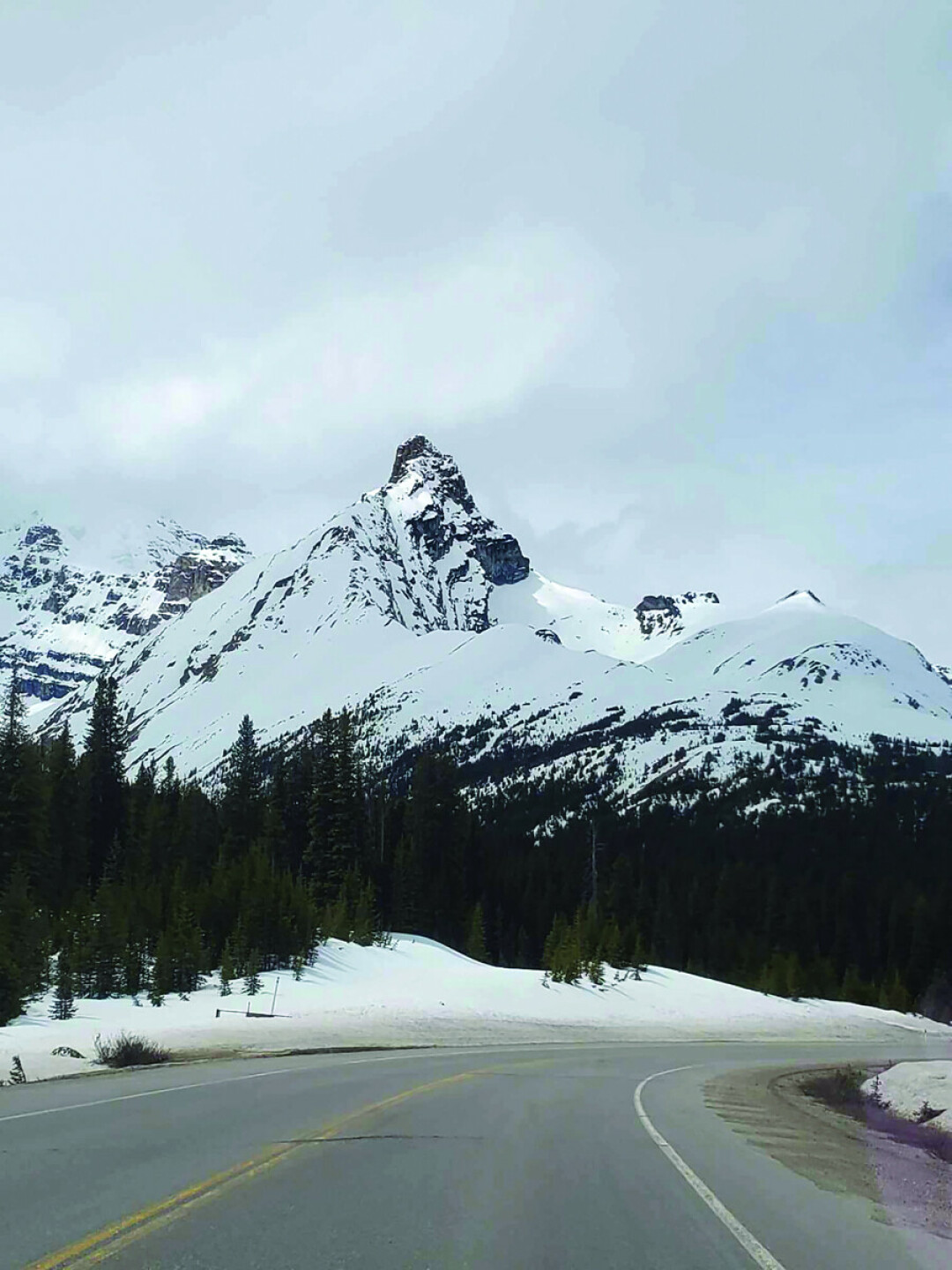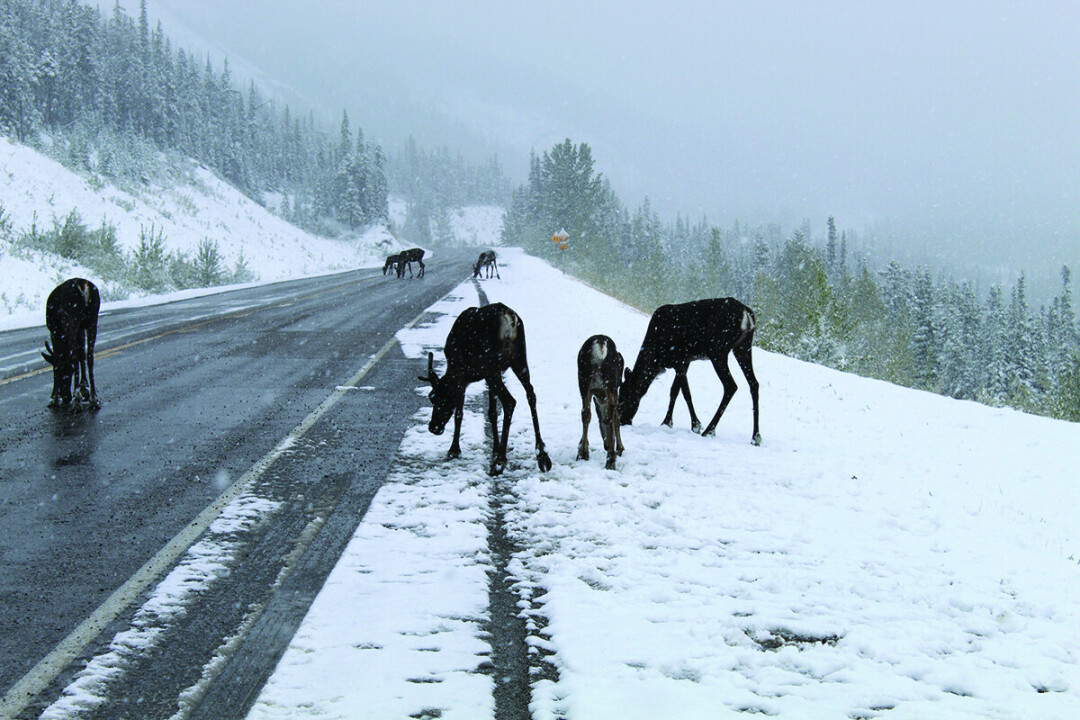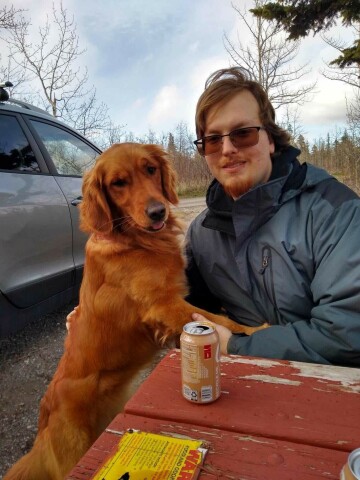Winter Camping Deserves A Spot in the Sun
Joseph Montalbano | Friday Dec. 1st, 2023

Camping in winter is a physically demanding task. It’s a test of physical ability to get anything done in hostile conditions, when the difference between being prepared or unprepared is crucial, and making one too many mistakes can mean heading home early, or possibly entering a dangerous situation.
So, it pays to be prepared. I’d like to share what I gained from my first, most impactful experience camping in the winter, and also offer some of the tips I found most helpful from the people that taught me what I know. Despite the hardships, camping in the winter is the most rewarding way to camp, and deserves to be respected alongside other forms of winter recreation.
The year was 2013. I had joined the Boy Scouts of America, and was quickly learning that this troop was a far cry from the fun, whimsical Cub Scouts I had just graduated from. My troop was entirely run by active and former members of the military, and it showed in the rigorous, monthly schedule of campouts. I was required to participate in at least nine of the twelve minimum campouts every year, where we would be taught survival skills in a trial by fire fashion.
My first campout with the troop was to be hosted by one of our Scout leaders, an army man I will call Mark Bishop; we were visiting a piece of his property, lovingly (and threateningly) called Narnia. Pressed right up into the shadow of the mountain, snow often accumulated up to five feet over the course of winter, due to the lack of light ever truly shining on Narnia. It was February, and the snow was up to my neck, considering I was only eleven.
During weeks of meetings, my scoutmasters impressed upon us the necessity to pack our warmest clothes, bring cold weather sleeping bags, etc. But I was just a kid; I didn’t understand that my collection of socks were cotton, and would soak quickly and freeze. I didn’t know the difference between waterproof and water-resistant snow pants. My scoutmasters warned us, rather ominously, that when problems arose, they would only step in to help us if we truly needed it. Unpleasant but harmless mistakes would not be prevented or interfered with, they would be learned from the hard way.
We carpooled out to Narnia in my dad’s 1991 Toyota Forerunner, packed with other chattering kids and gear. I was nervous—this was the first time I had camped in winter, the first time I had ever camped without the comfort of a warm, sunny summer with lots of adult guidance.
My fears were somewhat validated. We had to dig pathways through the snow around Narnia (the outhouse was entirely covered in snow, as was the fire pit) that quickly piled over my head. We hiked for a couple miles around the property, laying traps for rabbits, and caught nothing. The sweat from this labor froze to my skin and left me shivering, only hours after leaving the warm car. We kids sat around a pavilion too far away from the comfort of the fire pit, learning how to sharpen knives, axes, and other tools with files and whetstones, exposing our bare hands to the cold.
My cotton socks froze to my feet, my sleeping bag was inadequate for the temperatures, and I ended up cold, hungry, and soaked for the weekend. Temperatures overnight dropped to twenty-three degrees below zero, and I didn’t sleep a wink, shivering away in my bag, layering on every piece of clothing I had packed. The next day, I got up and did my best to ignore the cold and the wetness. I tried to be stoic during our lesson on orienteering and map reading, although I couldn’t pay attention due to my suffering. All I could think about were the warnings that had predated this campout, and didn’t want to look green and inexperienced. Being only eleven years old, I had every right to be both, but still, I tried my hardest to power through. Either way, I could not hide my suffering from the supervising scout leaders for long.
The adults had to step in. Mr. Bishop provided me a surplus army sleeping bag to use for the next night. He commanded me to dry my frozen, sore feet by the fire, and prescribed me to warm up in a truly spartan fashion: jumping jacks and push-ups until either I was warm, my socks had dried by the fire, or until he was convinced I had learned my lesson, whichever came last.
I am grateful for the punishment, truly. If not, I could have gotten hypothermia or worse, due to the combination of bitter cold, freezing sweat, and hard labor. In hindsight, I am glad I was not as good at hiding my problems as I thought I was, because that is one of the biggest lessons I learned that weekend. Ask for help if you need it. It can be a real bonding experience to share such a difficult feat with another person, and the best way to ensure your safety is to have other people by your side to help, should things go awry.
My campout in Narnia was difficult and full of unpleasantness, but I remember it very fondly. Even my eleven-year-old mind appreciated that the hard work had some kind of meaning; we had survived with no true disasters, and that was worthy of commendation in itself. Winter camping was what led to my development from a young, naïve boy to a man. Here are a few tips I learned along the way.
Hot water is your friend. I really hate drinking hot water. It feels wrong and unpleasant, but my scout troop required that we bring two empty liter water bottles. Before bed, we would boil a pot of water over the fire, or, if we brought it, the propane stove. We’d fill each of our bottles with the hot water, and scoop into it an often overzealous portion of Tang, the orange flavored powder. We would climb into our sleeping bags, with the hot bottles alongside us, making sure to not only avoid skin-to-bottle contact, but also to seal the bottles as tightly as possible to avoid spillage, giving us heat sources to help us sleep, and a lukewarm beverage to start the next morning off strong.
Wear as much wool as you can, and avoid cotton at all costs. This is somewhat essential, whereas the need for hot water bottles in your sleeping bag can often depend on the quality of your sleeping bag, the clothes you wear to bed, and how cold your winter campout actually is. Especially in the case of socks, wool is something I cannot imagine doing without ever again. Cotton is a wonderful material for shedding heat and keeping cool, which is the exact opposite of what you want in a winter campout. Wool is heavy, warm, and, most importantly, it will not feel cold when wet, whereas cotton or other socks can quickly become ice cubes when wet. This does not mean you can wear them indefinitely—changing your wet socks out for dry ones is necessary in order to spend any real time in the cold, but the warm wool will protect your feet from hypothermia for much longer than other materials.
Wear your boot liners to bed. This means you need snow boots with liners that can be removed. I found that wearing my boot liners kept them from freezing overnight in my boots, which can not only be cold and unpleasant as they thaw, but can freeze in shapes that can render your boots unwearable when morning comes. That is exactly what happened to me at Narnia, and, trust me, you do NOT want to spend twenty cold minutes stuffing your chilled feet into frozen boots.
The wisdom passed down from generations of scoutmasters is not always glamorous, but this is something I have to bring up: Use the bathroom often. I am not sure of the scientific validity of it, but Mark Bishop had ingrained into us the need to urinate often. Not only because of the large quantity of fluids that campers should be drinking in these cold weather situations (a minimum of two liters of water a day), but also to keep you warm. I can still hear him say, his breath frosting his mustache while his massive, gloved paws waved in the air; “If you pack around all that extra fluid,” Mr. Bishop would lecture, “you are just giving your body more stuff to keep heated, and every calorie counts out here. Now, go check the traps—quick, like hungry alligators!”
Whether you are an avid winter recreationalist or someone just now getting into winter sports, give winter camping a try. It can be scary, but fear can be overcome through knowledge, determination, and a willingness to persevere.
| Tweet |
